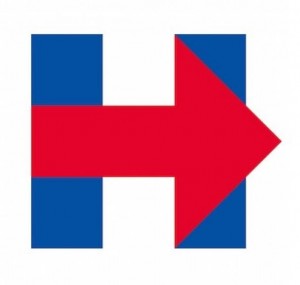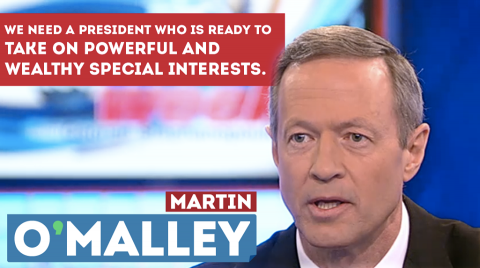On a Friday night in Alabama, it’s probably not unheard of to have 20,000 people in a football stadium. But the only game going on was a political one, for Donald Trump was holding a campaign event in Mobile.
Now think about this for a second. We are 14 1/2 months out from the Presidential election and five months out from the first votes being cast. But 20,000 people braved s sultry evening to hear a candidate talk tough on immigration because it is a key issue to voters like them. Indeed, there is the celebrity factor you won’t get with even a Hillary Clinton or Jeb Bush because The Donald is a TV star. (It’s not like we haven’t had an actor as a President; only the medium would be different. “B” movies evolve to “reality” TV.)
There are candidates on the right and left, in Trump and Bernie Sanders, who seem to be drawing large crowds wherever they go. Trump is talking tough on immigration and foreign policy while Sanders is portraying a socialist nirvana paid for by soaking the rich with an exorbitant tax rate. Since 99% of the audience thinks they will get something for free, naturally they will be supportive.
Liberals would discount Trump’s appeal as blatant racism designed to appeal to Southern whites. “Of course he will draw 20,000 in Alabama,” they chortle knowingly, “since all that live there are mouth-breathing racists who won’t let go of their Confederate flags or Bibles.” Two to three times a week I get DNC e-mail sneering about the latest thing Trump said.
But there is something about a candidate who vows to “make America great again.” It seems the last time we were in such a state of malaise it was at the end of a Democratic administration which reigned in an era shortly after a military defeat. Granted, we don’t have the “misery index” of inflation and unemployment that plagued Jimmy Carter’s one and only term, but we don’t exactly feel like we’re in an economic boom, either. America, by and large, gets tired of a party in power after eight years – aside from the deviation of an “extra” Republican term because Ronald Reagan won in 1980 and was succeeded by his vice-president George H.W. Bush, we have gone over six decades in that pattern. Democrats are not as wildly popular as Ronald Reagan was, so odds are the pendulum will swing back in 2016.
And Donald Trump has survived every pitfall predicted. No one thought he could get a campaign off the ground at first, then it was decided by the conventional wisdom that his comments about John McCain would sink him. After that, it was the Fox debate and people were sure they had him when Megyn Kelly was bleeding from wherever. Perhaps Trump has more political lives than Morris the Cat, but it seems that no matter what epitaph the political class writes for him, the rumors of his demise are greatly exaggerated.
To be quite honest, I tend to agree with Trump’s immigration stance. I’m sure it will be one of, if not the, highest score out there once I wrap up the immigration portion of my Dossier series.
Yet Trump is beginning a high-wire balancing act with his immigration proposal. On one side, he has to begin coming up with reasons to vote for him besides empty catch phrases, but on the other he needs to maintain the shoot-from-the-hip style that endears him to many voters among that 20,000 who showed up to watch him. If you replicated the same conditions in Salisbury, you might only get 5,000 – but that would be tenfold what any other candidate, including Sanders, would draw here.
I’m definitely not sold on Trump as the GOP standard bearer, and history is littered with candidates deemed “inevitable” a year out from the election who failed to win a single primary. America may get tired of Trump’s attitude and fire him from the GOP field, but there is that specter of a Perot-style run lurking. I was one of those disaffected Republicans who was so disappointed in the Bush 41 performance that I voted for Perot, and there were enough of us to swing the election the wrong way. Lesson learned.
I hope that I hear more from Trump on the important issues. Since he is all but a shoo-in for the next debate, maybe the questions won’t be the “gotcha” style ones employed by Fox. One can only hope, anyway.



 Somewhere, somebody is laughing all the way to the bank.
Somewhere, somebody is laughing all the way to the bank.